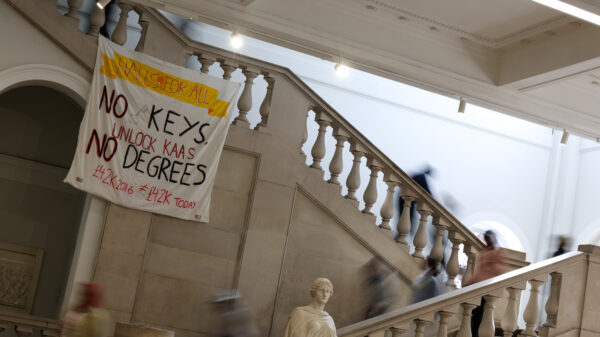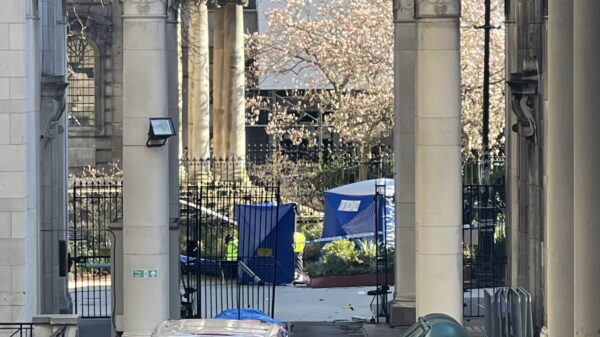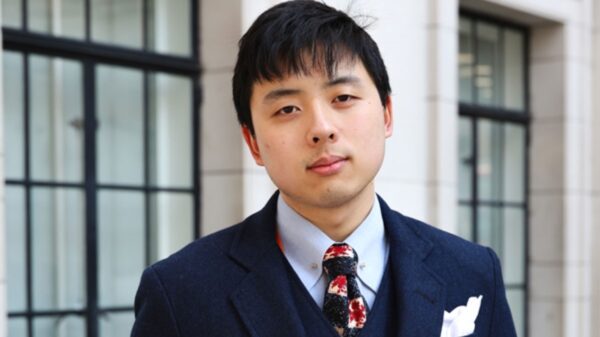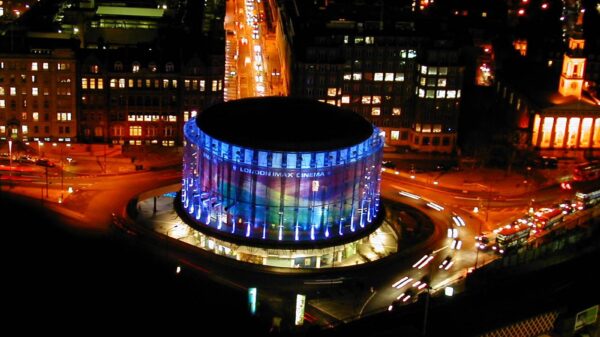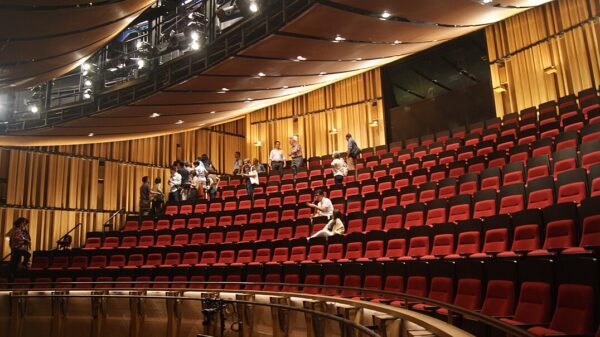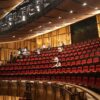Writer Evelyn Shepphird reviews “Standing at the Sky’s Edge”.
Standing at the Sky’s Edge sets Sheffield local Richard Hawley’s music against Sheffeild’s iconic Park Hill in a piece which makes history and legacy palpable.
A worker gazes out over the Sheffield skyline as yellow light washes over the truly impressive set, (Ben Stones) which folds audience and performers alike in the brutalist Park Hill housing estate. Three women–a redheaded Londoner, Poppy (Laura Pitt-Pulford), a Liberian refugee, Joy (Elizabeth Ayodele), and a high-heeled housewife, Rose (Rachael Wooding) croon under their respective signs–the 2010s, 1980s, and 1960s– and the musical begins optimistically.
Political stress quickly undercuts the intimate storylines of them and their relationships, as nearly seventy years of British history make their mark on the residents.
The originally perfect relationship between Harry (Joel Harper-Jackson) and Rose is put under immense stress during the steel worker’s strikes.


Performed at the same time but occurring decades later, Joy and Jimmy (Samuel Jordan,) attempt to claw their way into financial security as they unexpectedly start a family, and, yet later, Poppy’s persistent ex-girlfriend Nikki (Lauryn Redding,) attempts to win her back.
These performances are all strong, and well directed by Robert Hastie.
The parallel construction of three storylines, all set in the same flat, across decades, is a remarkably ambitious task for writer Chris Bush. A Sheffield native herself, she achieves an intimate, witty, literary book, which manages to incite affection for the Park Hill estate. “I think Park Hill encapsulates the whole essence of post-war Britain, from a socialist utopia ideal, through industrial decline and political disaffection, to the complicated public-private position it now sits in.” The building functions almost as its own character, acting often as a seedy, violent, unforgiving block, but is occasionally as kind as its inhabitants–in one moment, the neon I love you will u marry me flickers I love you: charming, intimate, and heartbreaking.
Ultimately, Standing at the Sky’s Edge is a political piece, in that it perfectly examines the ways in which the political is personal. Atypically for a piece of theater, the conflict is slow in coming. Rather than introduce immediate stakes, the piece builds both intimacy with the audience and a slow, excruciating political tension, which breaks alarmingly at the end of the first act during the truly immersive, riotous There’s a Storm A-Comin’.

Its political thesis couldn’t be clearer in this number, as the three storylines converge at three separate British elections, all of which went conservative. Lights flash as Margaret Thatcher asserts “Where there is error, may we bring peace,” through a radio, police sirens wail, and drums build. The chorus sings “Take a last look at the sky, through the hangman’s noose,” as dancers hurl themselves in fights and riots (sometimes between rows of audience members,) and mattresses and newspaper clippings are cast off of the brutalist balconies of the estate. It’s a frightfully immersive end of the first act.
Richard Hawley’s music (impressively performed by the dynamism of the on-stage orchestra and the rich voices of the cast,) is creatively adapted but clearly not written originally for theater, and, while scenes are often written between choruses of his music, songs, with few exceptions, don’t push the piece forward as much as they explain the emotions of the characters. This makes the piece, uniquely, half rock-set half politically rich theatrical piece, but makes the pace remarkably slow.
Nonetheless, Richard Hawley, when asked, made it clear he didn’t want it to come across as preachy, despite Sky’s Edge’s obvious political slant. “All you have to do is tell the story because what has happened to our country is so dramatic. It explains why we’re in the mess we are in now – we’ve been allowed to slip so far from humanity’s purpose.”
Standing at the Sky’s Edge is showing at the Gillian Lynne theater until 3 August 2024.
Evelyn Shepphird is a third year student at King's College London and Sciences Po, on the European Studies (French Pathway) Programme. She is the Culture Editor for Roar News.



